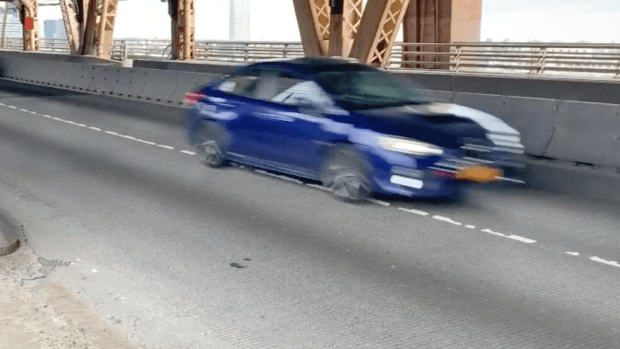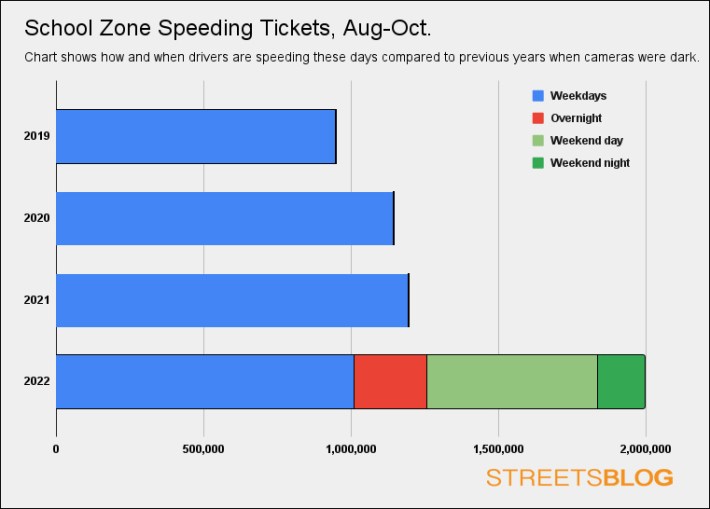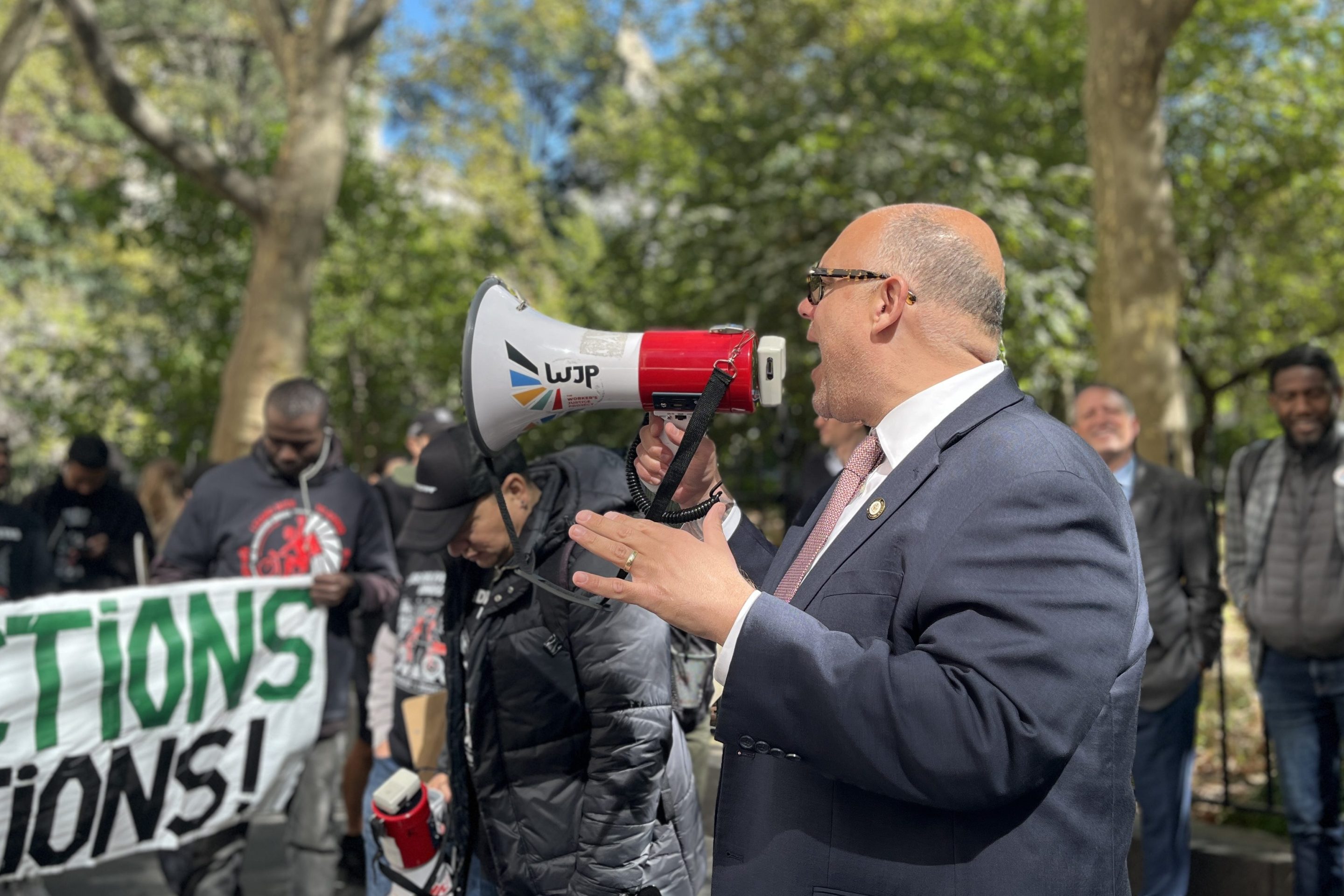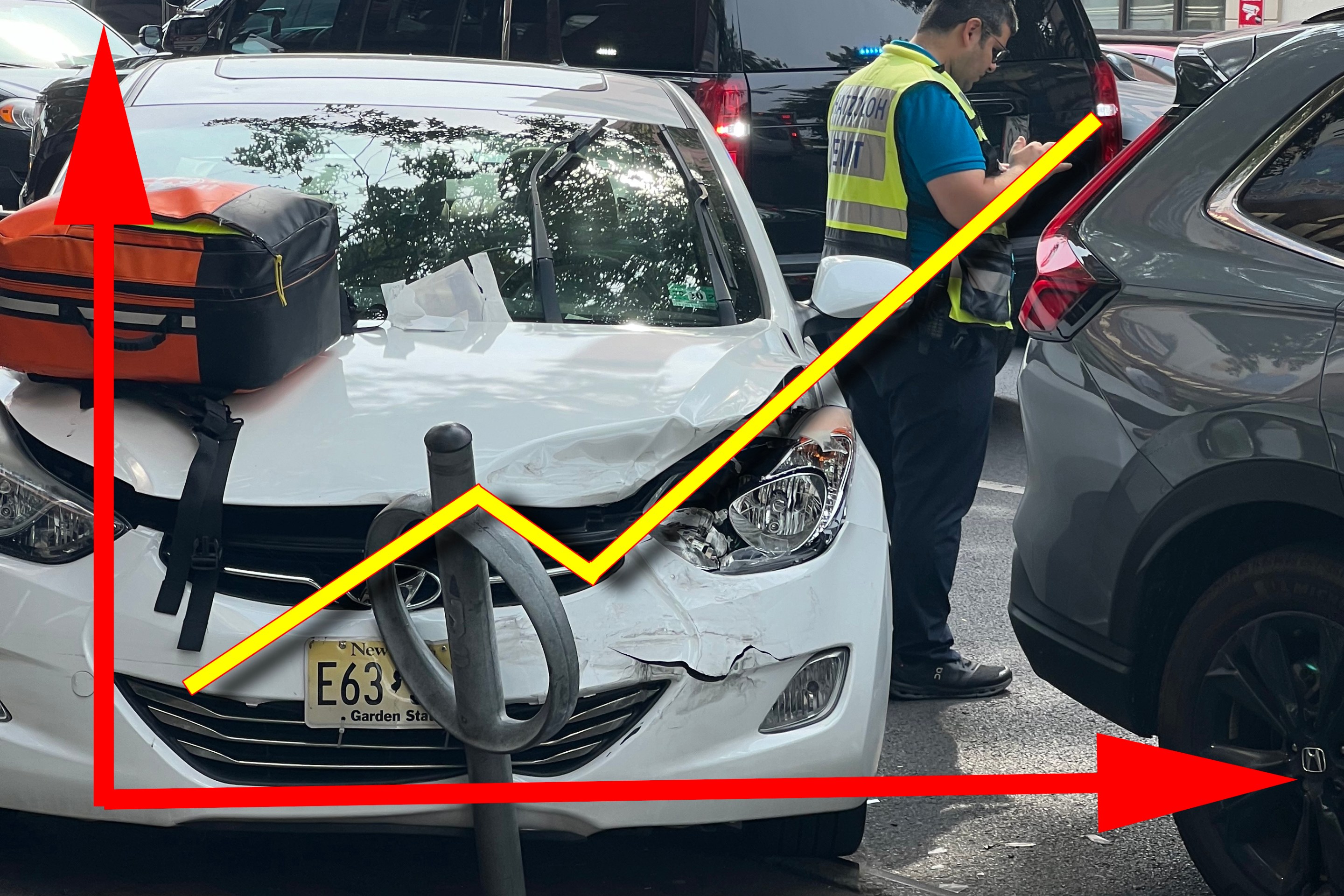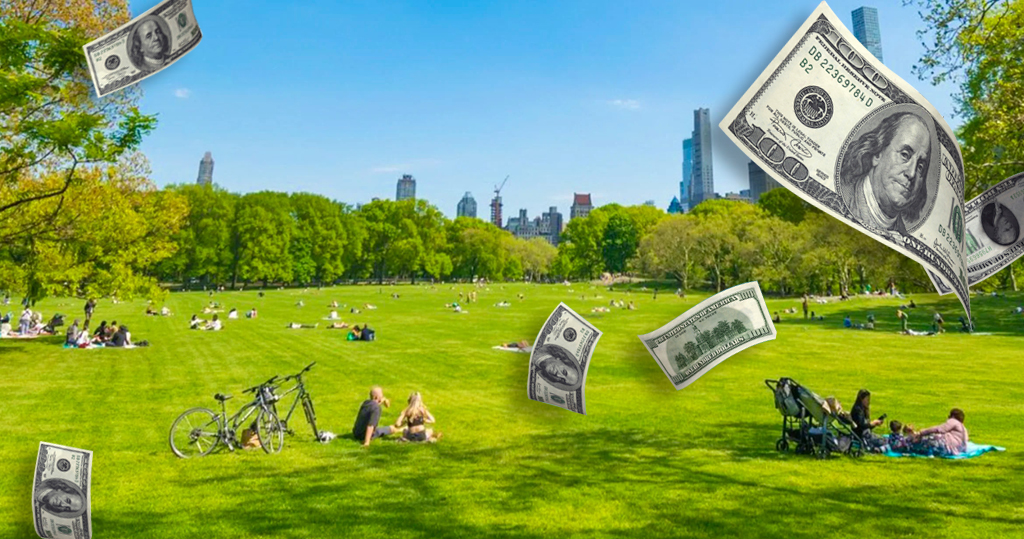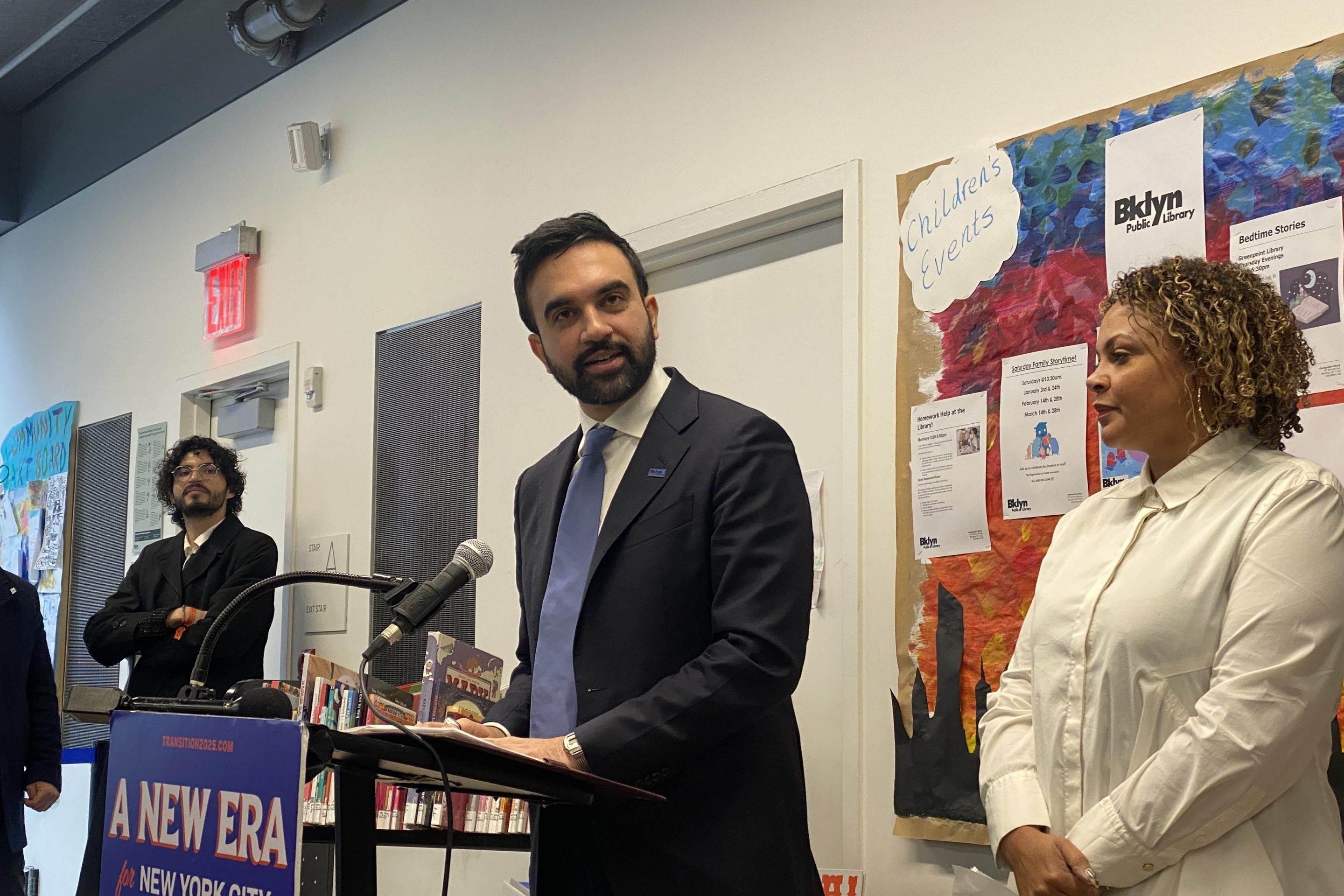City officials were right — there is a lot of speeding overnight and on weekends!
A simple crunch of the numbers of school zone speed camera tickets in the three months since the cameras were finally turned on 24-7-365 reveals that roughly one million overnight and weekend tickets were issued in August through October of this year — tickets that would never have been written before the change in state law won by the Adams administration. See the chart:
And, just as the city Department of Transportation has long said, drivers are getting the message about tickets; those issued between 6 a.m and 10 p.m. (the previous hours that cameras could operate) are starting to decline.
In the same three month period last year, 1,193,256 school-zone speeding tickets were issued by cameras during those daytime hours. That number dropped to 1,010,469 during the same period this year. (There were the same number of weekdays — 66 — in both periods, so the comparison is exact.)
So even though overall tickets are up about 67 percent thanks to those overnight and weekend hours, they're down about 15 percent in the 6 a.m. to 10 p.m. hours, evidence that drivers do indeed stop speeding after getting one or two of the automated tickets. (The Department of Transportation says that more than half of all drivers who received a first violation never receive another.)
The numbers are consistent with what Streetsblog found after the first three weeks of all-hours camera enforcement between Aug. 1 and Aug. 21. And the jump in overall tickets now that the cameras are on all day and all of the night also confirms what the city long suspected: there's a lot of speeding and reckless driving going on when the cameras were off.
“The data confirms what we already knew: drivers are excessively speeding at night and on weekends when cameras were turned off,” software engineer and data analyst Jehiah Czebotar told Streetsblog.
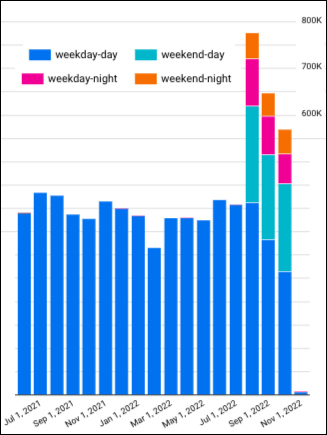
The Department of Transportation press office was closed on Friday in honor of Veterans Day, but spokesman Vin Barone referred us to the agency's prior comment on the matter:
“These cameras save lives and, in previous expansion efforts, we’ve seen increases in violations followed by large declines,” Barone said.
The month-by-month declines are even more dramatic when you separate out the months themselves: Czebotar crunched those numbers for Streetsblog and discovered that daytime tickets dropped in each of the three months in question:
This August, cameras wrote 412,545 tickets, which dropped 20 percent to 333,513 in September and dropped another 20 percent to 264,411 in October. (These numbers are reflected in the chart to the right.)
But safety is ultimately all that matters when it comes to enforcement against reckless drivers. So what do those numbers show?
In August through October last year, there were 29,923 reported crashes in the five boroughs, injuring 14,106 people: 1,572 cyclists, 2,098 pedestrians and 10,436 motorists, killing 80 people overall.
In the same three-month period this year, there were 26,325 reported crashes, injuring 13,033 people: 1,562 cyclists, 2,261 pedestrians and 9,210 motorists, killing 54 people overall.
So the math says that roadways are safer with the night and weekend cameras: crashes are down 12 percent, injuries are down 7.6 percent and overall fatalities are down 32 percent.
